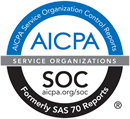Contact Us
- Call Now:(01)773-455-6676
- Sales Email:sales@dedicatedhosting4u.com
- Support Email:support@dedicatedhosting4u.com
- Billing Email:billing@dedicatedhosting4u.com
Close Support
Using the cheapest dedicated server host for your business
Using the cheapest dedicated server host for your business
Maximising output using the cheapest dedicated server host
Web hosting is inevitable for any business to prosper. If you run a business, probably you will be owning a website. There are thousands of hosting services to choose from when you need to start a website. But, it can literally become a challenging task to find the most reliable and cost-effective one. This means that you have to do pretty good research in order to find the cheapest dedicated server host available. While we say “cheapest”, it should not compromise on the quality of the service. It has to be a solution that provides all the capabilities of a web host up to a certain extent.
Making Comparisons before you get a web hosting service
If your webhosting service provider can give you a domain name as a plus in the package, it would be really respectable – and that is what we can really call as cheapest dedicated server host. There are many packages for web hosting that starts from a price as low as 3$ per month, promised with unlimited bandwidth and usage. While considering these services you have to be keen enough to read and understand the terms and conditions of the same. Anyways you will get more benefits by going for hosting dedicated server linux as a platform. This is because Linux is an open source technology which can be deployed free of cost and that is the reason why it cuts the rate to a great extent.
You can check the online reviews of a service provider through forums and online portals. It can help you a lot to end the quest to get the cheapest dedicated server host without wasting a great deal of time. There are many benefits of choosing a dedicated server host as said. You don’t actually have to worry about the type of site that you are going to build when you opt for this. And once you have opted for linux dedicated server , there is nothing much that you need to worry about regarding this aspect. Albeit you have to devote some time to study about the credibility of the provider and the services that they provide since your website is immensely important.
A lot of other hidden components also decides your cost , so must look into these to determining the actual cost of the Server .
Website Hosting’s Hidden Costs
It doesn’t matter if you’re developing your first website or if you’ve already built a few: you want to save money.
The web host is one of the areas where you might notice the largest influence on your website’s expenditures. This is the server on which your website “lives,” and it’s usually the most expensive element of website management.
Before you begin developing a website, you should be aware of the fees associated with web hosting. The expenses of hosting your website, like everything else, might impact some of your selections.
learn about web hosting’s hidden costs:
- Understanding Web Hosting Costs
There is no such thing as a one-size-fits-all website hosting service. As a result, you should be aware that there may be some hidden charges involved with site hosting.
Your web hosting, for example, must be able to scale as your company grows. To accommodate growing traffic, you might acquire more storage and bandwidth. This will result in higher costs.
Cutting shortcuts with site hosting fees might wind up costing you more money in the long run. You can come into problems that are more costly than you expect.
- Different kinds of web hosting
Website hosting may be divided into four categories.
Hosting that is shared. This is the most fundamental and widely used form of web hosting. Your website is stored on a shared server with other websites. All of the websites’ resources will be distributed equally. As a result, you may often save a significant amount of money on web hosting. However, there is a price to pay: If another website on the server has a surge in traffic (or is hacked), your website’s load times and performance may suffer (not to mention the security of your own website being jeopardized).
VPS stands for virtual private server (VPS). It’s a step up from shared hosting. Your website is hosted on the same server as other websites. The number of websites dividing the server, on the other hand, is reduced. The server is also divided into virtual servers, each of which is devoted to a different website. In comparison to shared web hosting, this means higher uptime rates, faster loading speeds, and more traffic volume. If another website on the server has a traffic spike or security difficulties, your website is less likely to be affected. However, VPS hosting is more expensive.
Hosting on a dedicated server. The greatest sort of hosting, in my opinion. Your website will have its own dedicated server. No longer must you be concerned about the performance and availability of your website due to the presence of other websites. The most significant disadvantage is the high cost of dedicated hosting. There’s also a lot more upkeep because you’ll need to keep the server maintained and updated on a regular basis.
Cloud hosting is a term that refers to the use of This is one of the most recent forms of web hosting. Rather of using a single shared or dedicated server, this strategy allows your website to contact several remote servers. It’s very scalable as a result of this. You’ll be able to add and remove resources as needed, and you’ll only be charged for what you use. This is ideal for developing websites that anticipate increased traffic or suffer irregular traffic surges.
As you could have guessed from the foregoing, prices differ from one web host to the next.
Shared hosting is the most affordable choice, dedicated servers are more expensive, VPS hosting is in the middle, and cloud hosting may be as cheap or as expensive as your organization requires.
- Website Visitor ship
It’s natural to want to save money by using a free or low-cost hosting provider. However, your site will ultimately expand. This is obviously a positive thing.
If you’re on a shared server, though, after your site reaches a particular size, the host may start to slow it down. The technique is referred to as “bandwidth throttling.” They do this to limit the amount of data that comes in and out of your website, preventing the rest of the server from being affected.
From here, a variety of things can occur. None of these are helpful things for your website.
It’s conceivable that visitors to your website will have difficulty accessing your pages and information. When they try to connect to your site, they may see error warnings.
The impact of loading time on a website page
Slow loading times are quite expensive. If your website takes longer than three seconds to load, over half of your visitors will quit it. Four out of every five of those visitors will never return.
This has a direct and negative influence on your bottom line if you operate an ecommerce or SaaS website. As a result, make sure you grasp the fundamental concepts that will help your website load faster. You may save thousands of dollars in lead generation, client acquisition expenses, and sales by upgrading and paying more for your web hosting.
A simple switch to VPS hosting, on the other hand, can be incredibly advantageous to the health of your website. This is especially true if you do it before seeing a spike in traffic.
- Security
Secure websites are necessary for trustworthiness. Your company’s safety should always be a top concern. It affects not just your company’s data, but also the confidence your customers and visitors have in your brand.
This is especially true if you’re in charge of payment processing. Consider all of the personal information that your website has. Protecting your site visitors and customers against hackers and harmful assaults is your job.
Here are a few security steps that you should do at the very least.
- Anti-spam protection
- Audits of security
Configuration of the firewall
- Protocols for network communication
- Malware and virus scanning
- Usernames and passwords
- Authentication on many levels
- Permissions granted to users
A secure cloud, where you can store all of your papers and manage data, is a popular security choice. All of this, though, comes at a cost.
However, if you pay for a reputable web hosting provider, all of these capabilities will be included in your monthly fee. This is far preferable to paying for them separately, or, even worse, paying the price of your website being hacked or having security issues.
As a result, inexpensive or free web hosting has a larger hidden cost than standard web hosting. They may skip on security elements, which could cost you more in the long term.
You might even want to explore adding extra levels of protection on top of that to chip away at the hidden costs—even if they appear to be expensive in the near term. This entails downloading and installing anti-spam, anti-virus, and anti-malware software on your computer. If you use it for work, this is very vital.
You might also use a security plugin to improve the security of your website. These provide a real-time firewall to your website to assist prevent spam and viruses
Here’s our list of the finest WordPress security plugins if you’re a WordPress user. Check your website’s CMS for any security add-ons if you don’t use WordPress. On any CMS, you can also buy effective endpoint security software to keep your IT infrastructure secure.
- Servers
You must also ensure that the servers that host your website are dependable. Before you sign up for any hosting provider based only on enticing cost, read reviews and do your homework.
Updated software, 24/7 monitoring, regular maintenance, and automated upgrades are all features of the finest servers. The majority of high-quality shared, VPS, and cloud providers will take care of this for you. Dedicated servers, on the other hand, usually come with unmanaged alternatives. You’ll have more control over your server as a result of this. However, you’ll be responsible for maintaining and updating it on a regular basis.
It’s worth noting that the global dedicated hosting business continues to increase year after year.
Each year, if your website is down for more than a week, you lose a week’s worth of revenues on your ecommerce site. When compared to the amount you’d spend if you merely got a decent web host with a greater uptime rate, this hidden cost is enormous.
- Costs of Operations
Many business owners just wish to host their own website. They come from a technological background and believe it will not be an issue. For example, an IT business may divert its attention away from its clients to manage its own hosting.
However, just because you have the option of self-hosting does not mean you should. I don’t mean to discourage you, but I don’t want you to have to deal with any unexpected or hidden expenditures.
You have a company to operate. Your everyday business operations should not be disrupted by hosting your own website.
Aside from routine software maintenance, the most expensive and time-consuming aspect of the equation is housing and maintaining the physical server. The majority of the expense of web hosting is incurred here. Servers require separate facilities that are constructed and cooled to meet the hardware’s requirements. Creating and maintaining these environments is costly in and of itself.
- Fees for Renewal and Setup
Web hosts love to offer enticing special pricing and then raise them once the promotional period has ended. This isn’t a huge secret.
However, it’s simple to overlook this and fail to account for the expense of renewal. Make sure you’re aware of this and expect them when they’re completed so you’re not caught off guard by a large charge later. It doesn’t matter if it’s next month, next year, or three years from now. In most circumstances, there is no way to avoid a price increase, but you should be prepared.
Consider how much it will cost you in the long run. I’m talking about two, five, or even ten years from now. What effect will renewal costs have on your bottom line?
You should anticipate paying full price at some point. This will most likely happen when you renew your membership.
A setup fee may be charged by some services.
The setup charge in the preceding scenario is zero. This isn’t always the case, though.
The setup expense is clearly justified for those of you who are paying for dedicated servers. Because your supplier may need to physically install hardware and set up software that you ordered, this is the case.
Additional costs for security add-ons may be charged as well. These are usually optional, but for the peace of mind and general benefit of keeping your website safe, they are definitely worth it.
- Conclusion
Your company’s and brand’s website hosting is critical. The hidden costs are one of the most significant differences between it and other aspects of your overall business strategy.
There are many different website hosting alternatives to choose, for example. The price varies based on the route you take. Some alternatives are more costly than others. You may also consider searching for free website hosting.
Your short- and long-term costs are influenced by your company’s maturity, size, growth plan, and traffic increases. Because, when it comes to web hosting, there is no such thing as a one-size-fits-all solution. The supplier you select is determined by your company’s brand, industry, and target audience.
The main thing is that you don’t compromise your web host’s quality in order to save money. That’s because the hidden expenses will bite you in the bottom line when you observe a drop in security, uptime, speed, and, most importantly, the overall experience and happiness of your website users.
Comments are closed.





